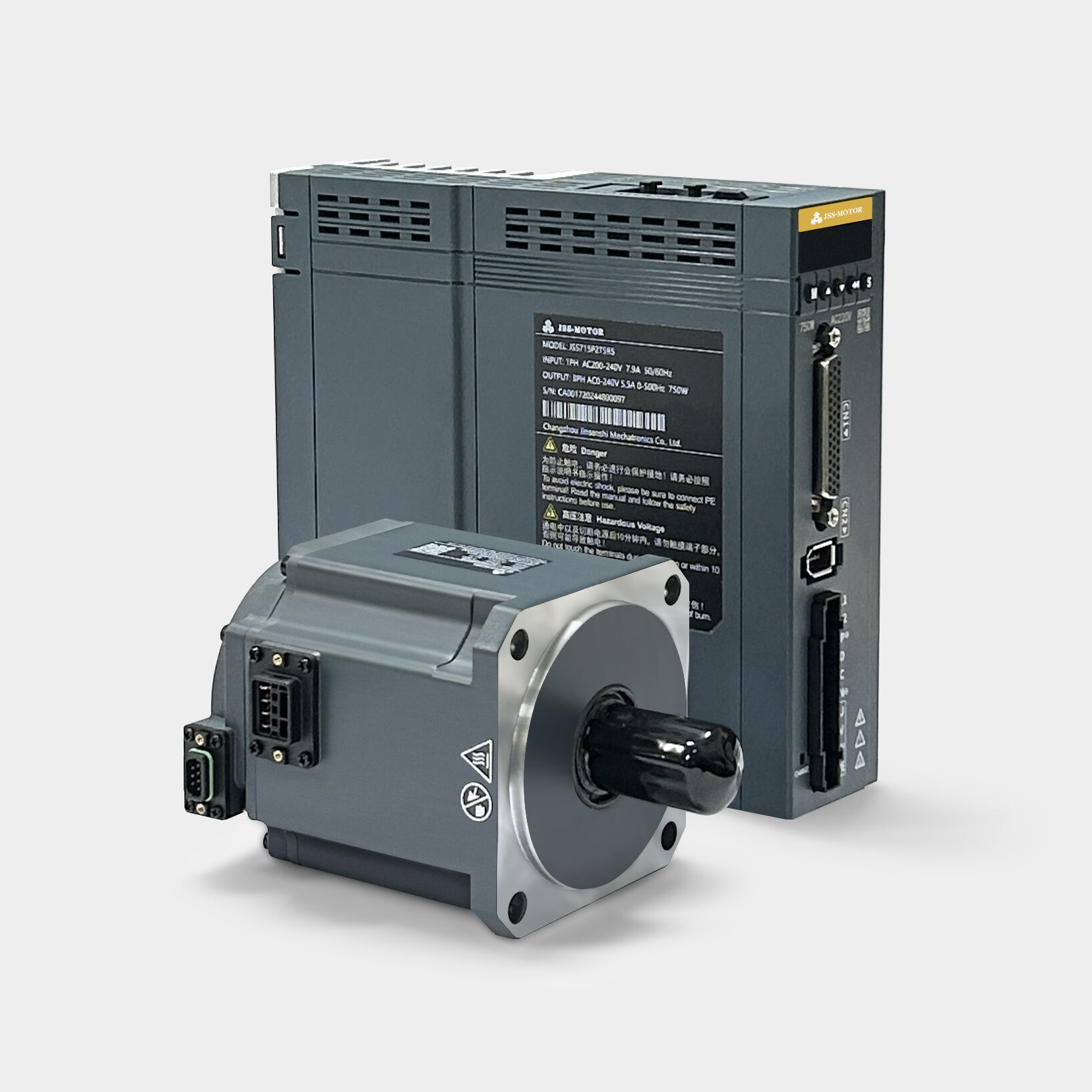The Evolution of Industrial Motion Control Technology
Industrial automation has witnessed a remarkable transformation over the past decades, with ac servo motors emerging as the cornerstone of precise motion control. These sophisticated devices have revolutionized manufacturing processes, offering unprecedented accuracy, efficiency, and reliability in various industrial applications. As we approach 2025, the role of ac servo motors continues to expand, driving innovation across multiple sectors.
The integration of ac servo motor technology represents a significant leap forward from traditional motor systems. With their ability to provide exact position control, rapid response times, and superior torque characteristics, these motors have become indispensable in modern industrial environments. Their impact extends far beyond basic automation, enabling the development of smart factories and supporting the ongoing industrial revolution.
Core Components and Operating Principles
Essential Elements of Modern Servo Systems
At the heart of every ac servo motor lies a carefully engineered system of components working in perfect harmony. The main elements include the motor itself, featuring precisely wound electromagnetic coils, permanent magnets, and a sophisticated rotor assembly. The encoder system provides continuous feedback about the motor's position and speed, while the servo drive processes this information to maintain optimal performance.
The control system integrates advanced algorithms that process feedback signals and adjust motor operation in real-time. This closed-loop control ensures maintain precise positioning and smooth motion, even under varying load conditions. Modern ac servo motor systems also incorporate thermal protection mechanisms and diagnostic capabilities that help prevent failures and optimize maintenance schedules.
Advanced Control Mechanisms
The sophisticated control mechanisms of ac servo motors enable them to achieve remarkable precision in motion control. Using vector control algorithms, these systems can independently manage both torque and speed parameters. The incorporation of digital signal processors allows for complex calculations to be performed in milliseconds, resulting in instantaneous responses to changing operational demands.
Modern servo control systems utilize adaptive control techniques that automatically adjust parameters based on operating conditions. This self-tuning capability ensures optimal performance across different applications and environmental conditions, making ac servo motors increasingly versatile and reliable for industrial use.

Applications Across Industrial Sectors
Manufacturing and Assembly Lines
In manufacturing environments, ac servo motors have become the driving force behind automated assembly lines. They control robotic arms with microscopic precision, manage conveyor systems with variable speed control, and operate pick-and-place machines that handle delicate components. Their ability to maintain consistent performance under heavy duty cycles makes them ideal for continuous production environments.
The packaging industry particularly benefits from servo motor technology, where precise synchronization of multiple axes is crucial. These motors enable smooth acceleration and deceleration profiles, reducing wear on mechanical components while maintaining high throughput rates. The result is improved product quality and reduced maintenance requirements.
Specialized Industry Applications
The semiconductor industry relies heavily on ac servo motors for wafer handling and processing equipment, where nanometer-level precision is essential. In the printing industry, these motors control paper feed mechanisms and printing head movements, ensuring consistent quality at high speeds. Medical equipment manufacturers utilize servo systems in diagnostic and treatment devices where precise positioning is critical for patient safety.
Renewable energy systems, particularly in solar tracking applications, employ ac servo motors to optimize panel positions throughout the day. The aerospace industry uses these motors in testing equipment and manufacturing processes where reliability and precision are paramount. Their versatility continues to open new applications across emerging industrial sectors.
Future Trends and Technological Advancements
Integration with Industry 4.0
The evolution of ac servo motor technology aligns perfectly with Industry 4.0 principles. Advanced connectivity features enable these motors to communicate seamlessly with industrial networks, sharing operational data and receiving real-time commands. This integration facilitates predictive maintenance strategies and optimized production planning, reducing downtime and improving overall equipment effectiveness.
Emerging IoT capabilities allow servo systems to participate in larger industrial ecosystems, contributing to smart factory initiatives. The ability to monitor and analyze performance data in real-time enables continuous process improvement and adaptive manufacturing strategies, pushing the boundaries of industrial automation.
Technological Innovations
Recent developments in magnetic materials and control algorithms are pushing the performance boundaries of ac servo motors. New designs incorporate advanced materials that improve power density and efficiency, while reducing size and weight. Enhanced thermal management systems enable higher continuous operating speeds without compromising reliability.
Artificial intelligence and machine learning algorithms are being integrated into servo control systems, enabling self-optimization and adaptive performance. These innovations are particularly valuable in applications requiring complex motion profiles or varying load conditions, where traditional control methods may be less effective.
Frequently Asked Questions
What makes ac servo motors different from standard electric motors?
AC servo motors distinguish themselves through their precise position control, superior speed regulation, and ability to maintain torque at various speeds. Unlike standard motors, they operate in a closed-loop system with feedback mechanisms that continuously monitor and adjust performance parameters to maintain accuracy.
How do ac servo motors contribute to energy efficiency?
These motors optimize energy consumption through precise control of speed and torque, only using power when needed. Their high efficiency ratings, typically above 90%, combined with regenerative capabilities in braking scenarios, significantly reduce overall energy consumption in industrial applications.
What maintenance requirements do ac servo motors have?
Modern ac servo motors are designed for minimal maintenance, requiring periodic inspection of bearings, encoder systems, and electrical connections. Regular monitoring of performance parameters through built-in diagnostics helps predict and prevent potential issues, ensuring long-term reliability and optimal operation.
